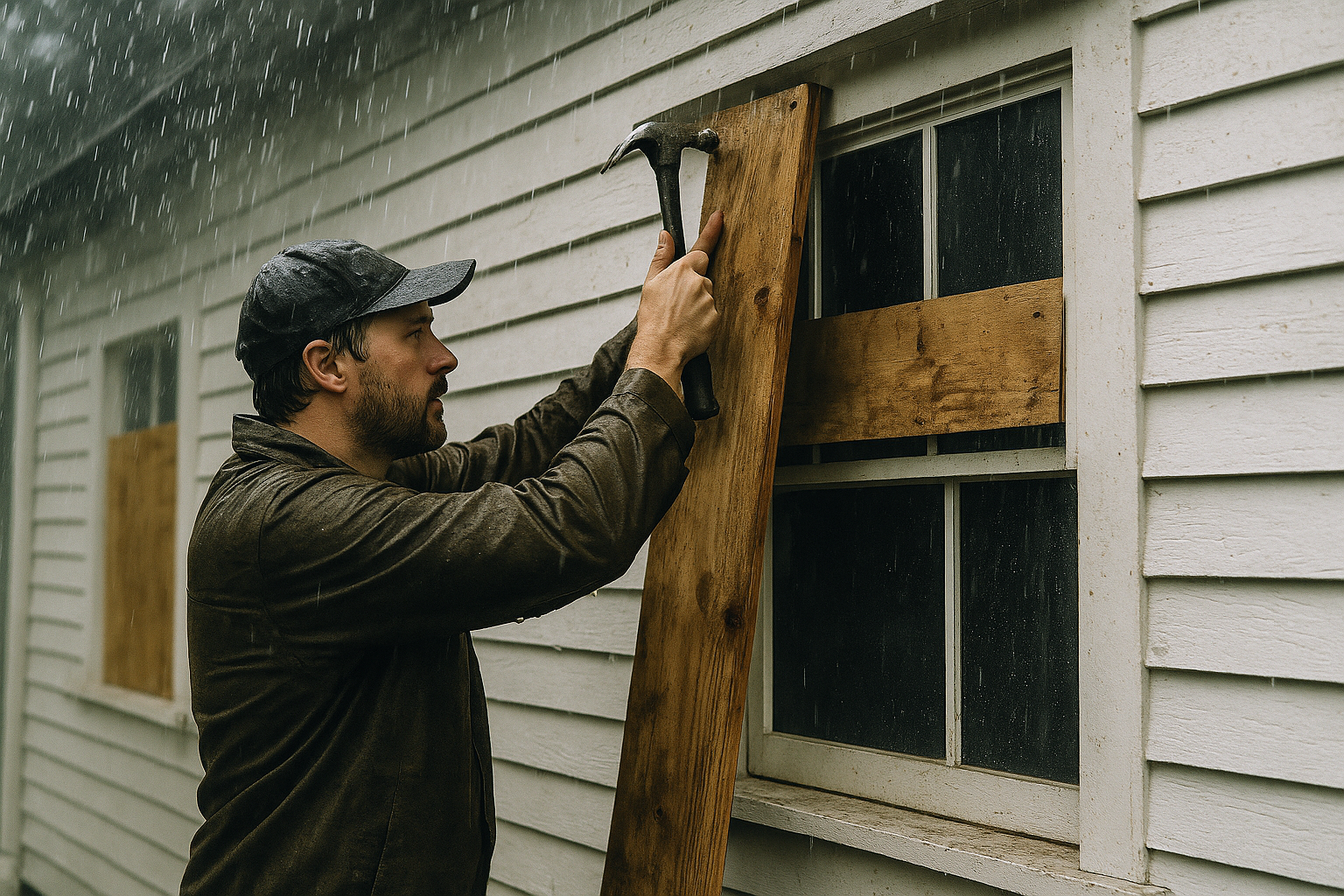Florida homeowners face unique challenges every year during hurricane season. With strong winds, heavy rain, and storm surge, hurricanes can cause severe damage to homes and properties. To stay prepared, Floridians must take proactive steps to protect their investments and families from costly losses. Many residents believe that insurance will automatically cover all hurricane damage, but special considerations apply in the Sunshine State. Understanding those differences makes a significant impact on your finances and peace of mind. Adequate preparation involves more than just securing windows or stocking up on supplies; it also requires careful planning and consideration. Homeowners must also focus on having the right insurance and knowing how to navigate claims. By planning, Florida residents can confidently face hurricane season and reduce potential risks.
Understanding Florida’s Unique Hurricane Insurance Needs
Florida’s coastal geography makes it one of the most hurricane-prone areas in the United States. Because of this, home insurance policies in Florida often differ from those in other states. In most cases, standard policies do not automatically cover hurricane-related flooding, which surprises many new homeowners. For complete protection, you may need to add flood insurance, as windstorm or hurricane deductibles can also apply separately. While some believe flood damage is only a risk near the ocean, heavy rains and storm surges can also flood inland neighborhoods. Therefore, understanding your home’s specific risks is crucial for adequate coverage.
Insurance companies in Florida often require higher premiums due to the state’s high exposure to frequent storms. However, these premiums reflect the higher likelihood of claims due to hurricane activity. Additionally, some insurers may limit the availability of certain coverages or impose stricter terms following significant storms. Knowing this helps homeowners avoid frustration when shopping for new policies or renewing existing ones. It is essential to read policy documents carefully and ask questions about exclusions for wind or flood damage. By doing so, you can avoid expensive surprises after a hurricane hits.
Because the rules and options change often, staying up to date on insurance regulations benefits every Florida homeowner. The state government sometimes revises requirements for deductibles and minimum coverages. Staying informed helps you maintain compliance and keep your coverage up to date. Many insurance agents in Florida specialize in hurricane protection, so consulting a knowledgeable local agent increases your chances of finding the right fit. Regular reviews ensure your home remains well-protected, even as circumstances change over time.
Evaluating and Choosing the Right Home Insurance Policy
When searching for home insurance in Florida, it is essential to compare multiple policies. Although every policy may appear similar at first glance, the details can have a significant impact on your coverage during a hurricane. For example, some policies include windstorm coverage, while others require a separate endorsement to be added. Always ask your insurance provider about special deductibles for hurricanes, as these are often higher than standard deductibles. Because deductibles can be a percentage of your home’s insured value, hurricane claims may cost more out of pocket. It is wise to factor these potential costs into your emergency budget.
In addition to hurricane and windstorm coverage, https://floridainsurancequotes.net/florida-homeowners-insurance/ says Florida homeowners should strongly consider flood insurance. The National Flood Insurance Program offers government-backed policies to mitigate flood risks, but private insurers may also provide alternative options. Even if you do not live in a designated flood zone, your home can still face flooding from heavy rain or overwhelmed drainage systems. Adding flood insurance protects your finances and fills a crucial gap left by standard policies. By evaluating your property’s location and history, you can make informed decisions about coverage levels.
While price matters, choosing the cheapest policy does not always offer the best value. Instead, focus on finding a reputable insurer with strong customer service and a history of timely claims payments. Many homeowners prefer to bundle their policies, which can sometimes lower costs and simplify management. Always request written explanations for each coverage, and keep copies of all documents in a safe location. By staying organized and asking questions, you will feel more confident in your insurance decisions. These steps lay the foundation for adequate protection during hurricane season.
Essential Steps to Strengthen Your Home’s Hurricane Defenses
Homeowners in Florida can do more than just rely on insurance; physical preparations play a significant role in minimizing hurricane damage. One of the most effective steps is installing impact-resistant windows or hurricane shutters. In addition to protecting against flying debris, these improvements can sometimes lower your insurance premiums. Many insurers recognize the added safety value and offer discounts for certain upgrades. Always check with your provider before making changes to ensure you receive any available savings.
Another essential measure involves reinforcing your roof and doors. Roof tie-downs, hurricane straps, and proper sealing help prevent catastrophic failures from high winds. Garage doors also require extra attention, as they are vulnerable to substantial pressure differences during a storm. By bolstering these entry points, you reduce the chance of structural failure and costly repairs. Regular home maintenance, such as cleaning gutters and trimming trees, also helps avoid additional damage from clogged drains or falling branches.
Both new and older homes benefit from professional inspections before hurricane season begins. Many local contractors specialize in identifying areas that require attention. Although the upfront investment may seem high, these improvements can significantly reduce long-term repair costs. Additionally, some communities offer grant programs or incentives to offset the expense of hurricane-proofing your home. By taking these practical steps, you can maximize your family’s safety and preserve the value of your property during storms.
Navigating Claims and Documentation Before and After Storms
Proper documentation is key to a successful and timely insurance claim after a hurricane. Before a storm arrives, take photos and videos of your home’s exterior and interior, clearly showing the condition of each room and valuable item. Always store these records in a secure, easily accessible location, such as a cloud drive or waterproof container. Additionally, keep receipts for recent upgrades or purchases, as these will help establish value during the claims process. Preparing a detailed home inventory in advance can save you significant stress later on.
After a hurricane, inspect your home for damage as soon as it is safe to do so. Document everything thoroughly, including water stains, broken windows, roof damage, and lost personal belongings. Contact your insurance company promptly to initiate your claim, providing all necessary documentation. Because adjusters may become overwhelmed after major storms, early reporting increases your chances of a faster resolution. Maintain a log of all communications with your insurer, noting dates, names, and summaries of each conversation.
While the claims process may seem overwhelming, staying organized and proactive can make a notable difference. Respond quickly when your insurer requests additional information or documentation. If disputes arise, you may benefit from consulting a public adjuster or legal expert who understands hurricane-related claims. Your persistence and attention to detail help ensure you receive the compensation you deserve. By following these steps, you protect your financial interests and ease the recovery process for your family.
Long-Term Strategies for Peace of Mind During Hurricane Season
Building long-term resilience against hurricanes requires a blend of planning, investment, and education. In addition to maintaining strong insurance coverage, continue to improve your home’s defenses over time. Schedule annual home inspections to identify new vulnerabilities as weather patterns and building codes evolve. Regularly review your insurance policies to make adjustments that reflect changes in your property’s value or structure. By staying proactive, you reduce both risk and anxiety each hurricane season.
Community involvement also plays a significant role in hurricane preparedness. Many Florida neighborhoods organize disaster response groups or share resources, such as sandbags and emergency supplies. By participating in these efforts, you not only receive support but also help strengthen your community’s overall resilience. Local government programs often provide updated information about evacuation routes and storm shelters. Staying informed and connected keeps you ready for unexpected developments.
Continuing to educate yourself and your family about hurricane safety creates lasting peace of mind. Attend workshops or read guides provided by local officials or insurance providers. Practice emergency drills so everyone knows their responsibilities and destinations in case of evacuation. By cultivating a mindset of vigilance and readiness, you empower your household to respond calmly and effectively to any storm. Together, these strategies form a strong foundation for protecting your loved ones and property throughout hurricane season.
Conclusion
Protecting your home from hurricane damage in Florida requires careful preparation, ongoing education, and the right combination of insurance and physical defenses. By understanding the unique insurance needs in the state, you set yourself up for financial security before disaster strikes. Evaluating and choosing the right policy means looking beyond price alone, ensuring comprehensive coverage and a reliable claims service. Taking action to strengthen your home, such as fortifying windows and roofs, further limits your exposure to storm-related losses. Thorough documentation and organization streamline the insurance claims process, making recovery smoother and less stressful. Long-term strategies, including regular policy reviews and community participation, enhance your resilience for years to come. Get a quote at https://floridainsurancequotes.net/florida-homeowners-insurance/ before hurricane season arrives. Your preparation helps safeguard not just your property but also your loved ones. Relying solely on insurance is not enough; practical steps and awareness matter just as much. By combining all these approaches, Florida homeowners can face hurricane threats with greater confidence. Ultimately, planning brings peace of mind, knowing you have done everything possible to protect what matters most.



